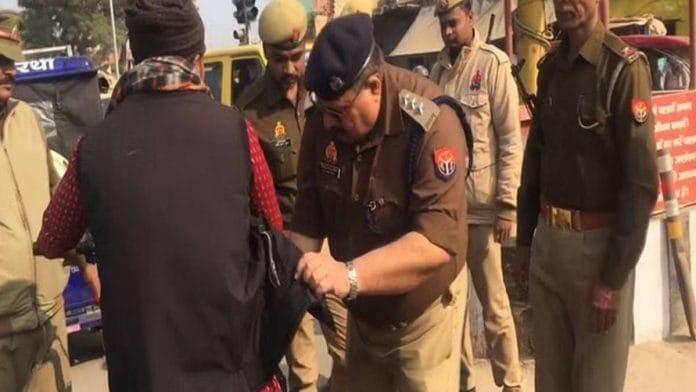New Delhi: Pointing to growing concerns over institutional bias, reinforcing of stereotypes and the risk of prejudicial treatment against marginalised communities, the Allahabad High Court has asked the Director General of Police (DGP), Uttar Pradesh, to file an affidavit justifying the need to mention the caste of suspects in FIRs or during police investigation.
In doing so, the bench of Justice Vinod Diwakar noted that in a society where social divisions continue to influence law enforcement practices and public perception, the DGP must justify the requirement and relevance of mentioning the caste of suspects.
“The Director General of Police is directed to file a personal affidavit, before the next date of hearing, justifying the requirement and relevance of mentioning the caste of a suspect or a group of persons in an FIR or during a police investigation in a caste-ridden society, where social divisions continue to influence law enforcement practices and public perception,” the court said in its 3 March ruling, listing the case for further hearing on 12 March.
Emphasising the constitutional guarantee of abolishing caste-based discrimination in India and the enshrined values of equality, dignity and impartial justice for all, the HC noted that the Supreme Court has also “deprecated the practice of mentioning caste and religion in pleadings” while recognising that such references “serve no legal purpose” and “may perpetuate discrimination”.
The order came while the court was dealing with a plea by one Praveen Chetri seeking to quash an FIR of forgery and cheating against him.
The man had been apprehended by the UP Police in a black Scorpio car carrying 213 bottles of Royal Challenge premium whiskey and 36 bottles of Royal Stag premium whiskey, that said “for sale in Haryana only”. On interrogation, he claimed that he was only a co-passenger in the car, and was being falsely implicated, according to the order.
The prosecution alleged in court that the man was a gang leader who bought liquor from Haryana to sell it in Bihar, at higher prices, for profit. In the process, he would also frequently change the number plates of the cars, while he was in transit.
In its ruling, the court noted that the police had apprehended and later arrested several persons on the spot, while adding that the caste of all accused was mentioned in the FIR.
It has been noted that the caste of all the accused has been mentioned in the FIR, the court said while referencing the complaint which used words like “Maali”, “Thakur” and “Pahadi”, among others, in reference to the accused.
Also Read: Did the British invent caste in India? Yes, at least how we see it now
Earlier rulings on the subject
Last year, in March, the Supreme Court had said the caste of parties should not be mentioned in the titles of judgments while examining the plea of a man convicted of raping a girl aged under 16.
In this case, the Rajasthan government had approached the top court challenging the shortening of the convict’s sentence by the state high court, while confirming his conviction.
“Before we part with the judgment, we find from the cause title of the judgments of the trial court and the high court that the respondent’s caste has been mentioned. The same defect has been carried forward in the special leave petition as the description of the respondent-accused must have been copied from the cause title of the judgments of the courts,” a bench of Justices Abhay Oka and Pankaj Mithal had noted in its later judgment in the matter, delivered on 11 October.
“An accused has no caste or religion when the court deals with his case. We fail to understand why the caste of the accused has been mentioned in the cause title of the judgments of the high court and the trial court. The caste or religion of a litigant should never be mentioned,” the court added.
Besides this, the Rajasthan High Court in April 2020 had passed a standing order, signed by the registrar general, which said that such a practice violates the constitutional ethos.
This order also referred to a 2018 case, Bishan vs State of Rajasthan, where the HC had directed the police to not mention the caste of individuals in arrest memos “as identifying a person by caste is neither provided under the CrPC (Code of Criminal Procedure) nor is it provided under any law under the Constitution”.
However, cases arising out of the Scheduled Castes and the Scheduled Tribes (Prevention of Atrocities) Act, 1989, would be exempted from this, the court said.
In another similar 2016 case of one Rakesh Sharma, the Punjab and Haryana High Court said it was “impermissible” to use the parties’ castes, while adding that “mentioning of caste/status separately in criminal proceedings is a colonial legacy and requires to be stopped forthwith”.
(Edited by Nida Fatima Siddiqui)
Also Read: The nauseating nepotism and caste-based discrimination that exists in Indian judiciary






